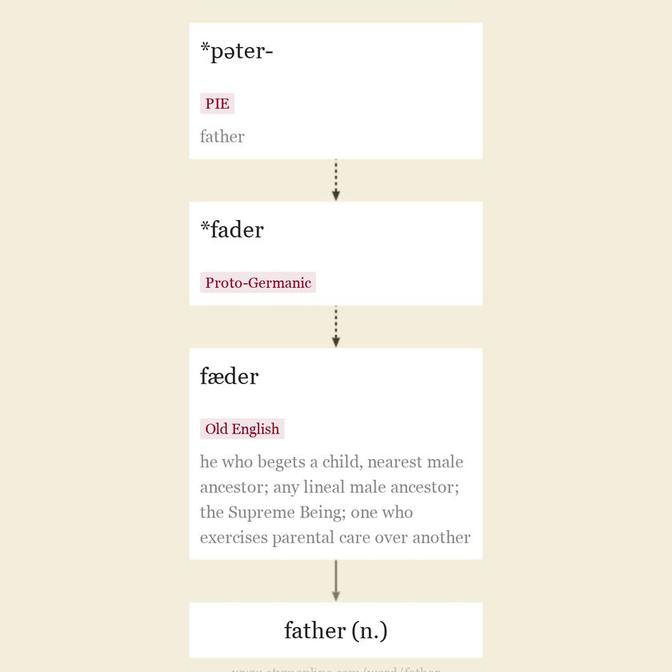forefather n.
"
Entries linking to forefather
Middle English for-, fore-, from Old English fore-, often for- or foran-, from fore (adv. & prep.), which was used as a prefix in Old English as in other Germanic languages with a sense of "

Old English fæder "
My heart leaps up when I behold
A rainbow in the sky:
So was it when my life began;
So is it now I am a man;
So be it when I shall grow old,
Or let me die!
The Child is father of the Man;
I could wish my days to be
Bound each to each by natural piety.
[Wordsworth, 1802]
The classic example of Grimm's Law, where PIE "
Proto-Indo-European root forming prepositions, etc., meaning "
It forms all or part of: afford; approach; appropriate; approve; approximate; barbican; before; deprive; expropriate; far; first; for; for-; fore; fore-; forefather; foremost; former (adj.); forth; frame; frau; fret; Freya; fro; froward; from; furnish; furniture; further; galore; hysteron-proteron; impervious; improbity; impromptu; improve; palfrey; par (prep.); para- (1) "
It is the hypothetical source of/evidence for its existence is provided by: Sanskrit pari "
updated on December 17, 2014